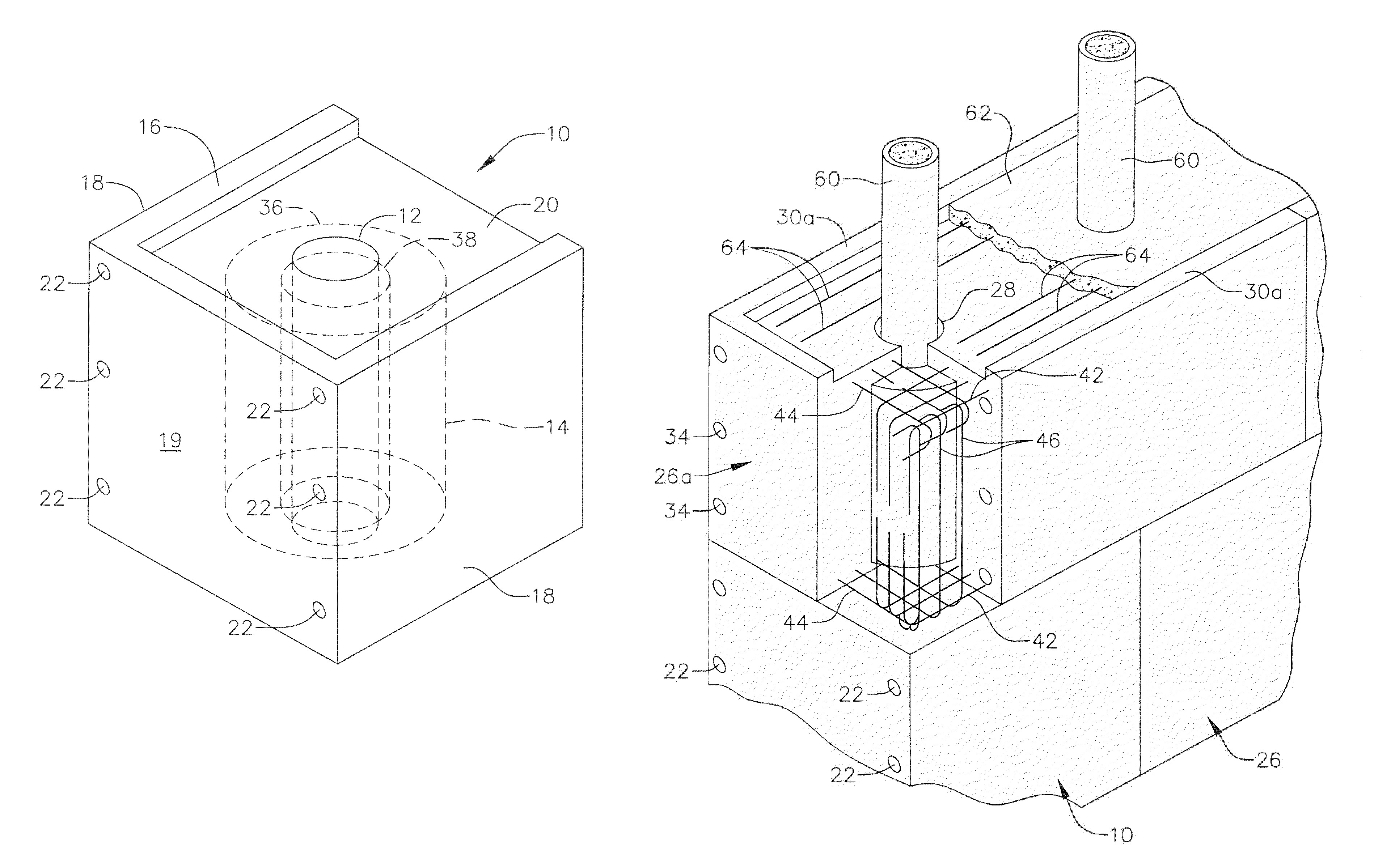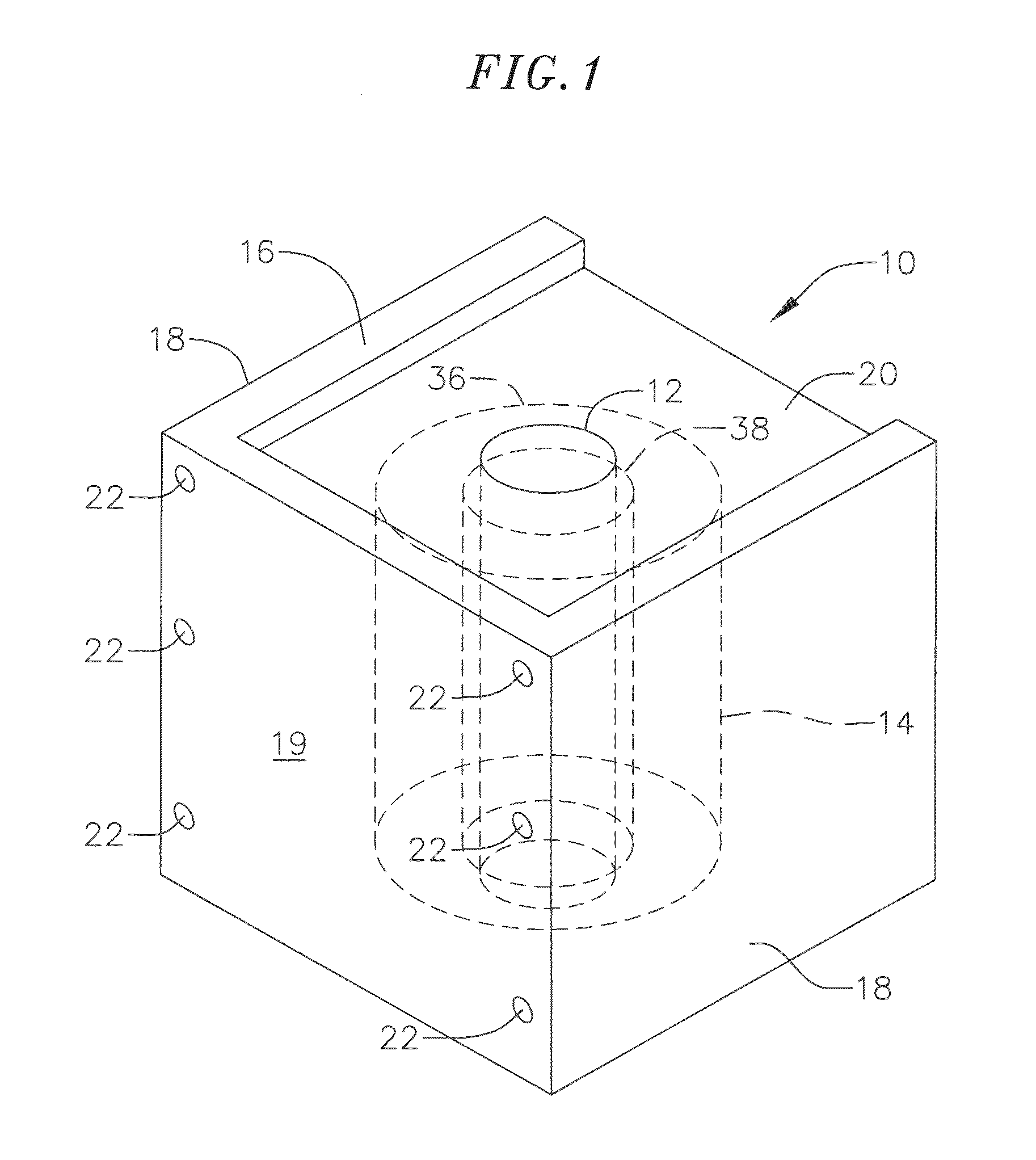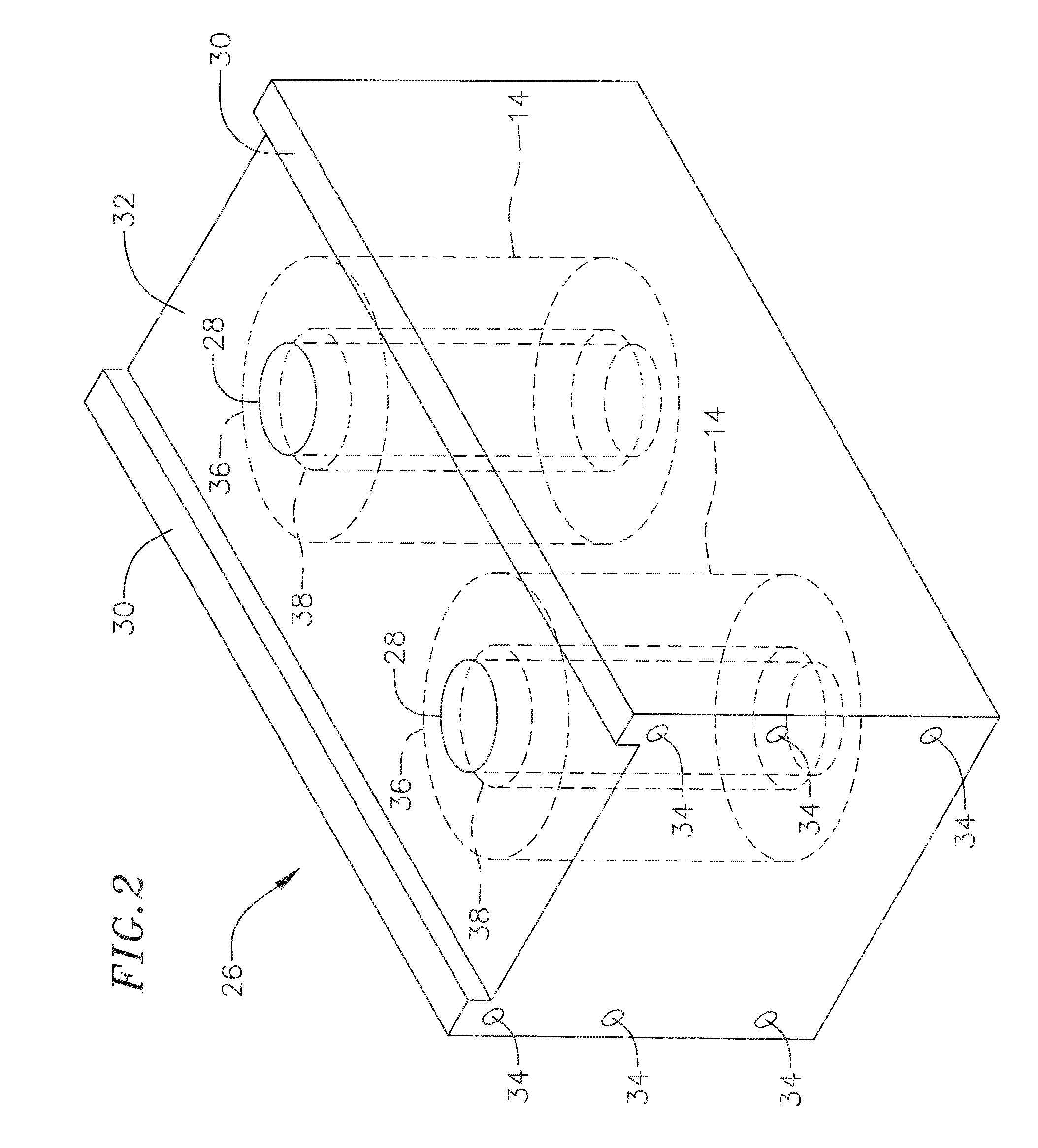System of stacked concrete blocks, each block having a tire wall stack therewithin surrounding a hollow core through which a vertical reinforcing member extends and reinforcing bars in mortar in void between adjacent blocks
a technology of concrete blocks and stacked blocks, applied in the direction of walls, buildings, instruments, etc., can solve the problems of low tire usage, inefficient stackability, and risk of slippage and movement, and achieve the effect of avoiding slippag
- Summary
- Abstract
- Description
- Claims
- Application Information
AI Technical Summary
Benefits of technology
Problems solved by technology
Method used
Image
Examples
Embodiment Construction
[0045]The drawings illustrate structural systems utilizing oversized hollow unit precast concrete blocks and a method for making and using them. Referring to one embodiment of the invention in FIG. 1, a precast concrete building block 10 comprises a compressed annular tire wall stack unit 14 encased in reinforced concrete. In cross-section, the block is square if a single tire stack is used and rectangular if two or more stacks are used. The block has a hollow core 12 extending through the stack unit to provide for vertical reinforcement. FIG. 1 illustrates the block 10 shaped generally as a cube, having a single tire stack unit 14 disposed centrally within the block. The precast block 10 includes a three-sided upwardly projecting lip 16 of generally uniform height spanning two opposite sides 18 and an end 19 of the block. This forms a shallow recess 20 of generally rectangular shape on an upper surface of the block within the outer lip. The recess 20 provides for bond beam (horizon...
PUM
 Login to View More
Login to View More Abstract
Description
Claims
Application Information
 Login to View More
Login to View More - R&D
- Intellectual Property
- Life Sciences
- Materials
- Tech Scout
- Unparalleled Data Quality
- Higher Quality Content
- 60% Fewer Hallucinations
Browse by: Latest US Patents, China's latest patents, Technical Efficacy Thesaurus, Application Domain, Technology Topic, Popular Technical Reports.
© 2025 PatSnap. All rights reserved.Legal|Privacy policy|Modern Slavery Act Transparency Statement|Sitemap|About US| Contact US: help@patsnap.com



